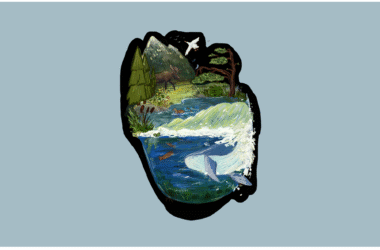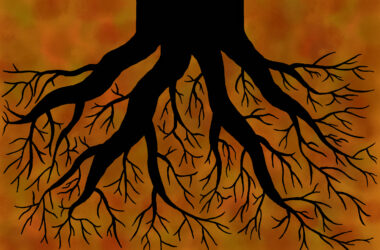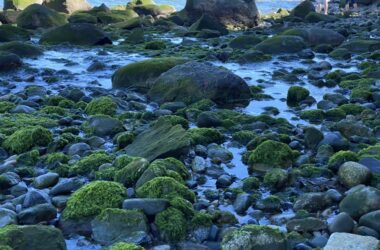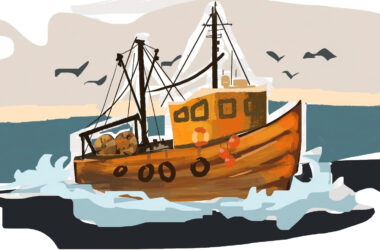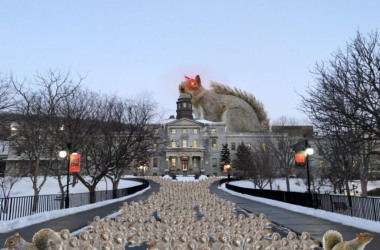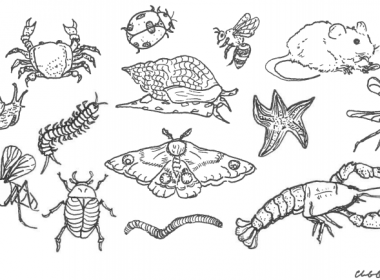Human activity has degraded or destroyed many ecosystems; an estimated 75 per cent of the Earth’s land surface has been significantly altered by human activity. This degradation contributes to climate change, reduces water quality, degrades soils, and disrupts pollination patterns. Restoration of degraded ecosystems may serve as a solution to[Read More…]
Tag: ecology
Back to the roots: Investigating how soil influences root traits
Plant roots may be out of sight, but they are not out of mind for McGill researchers. While it is known that fine roots—those less than two mm in diametre—possess highly variable physiological and morphological properties, the reasons behind this variation remain unknown. Caroline Dallstream, a PhD student in McGill’s[Read More…]
Eleven years of eco-resistance
The anatomy of Divest McGill’s successful student movement Written by Shani Laskin, Managing Editor & Designed by Mia Helfrich, Design Editor For over a decade, Divest McGill ignited defiance against institutional apathy. The student-led activist group, founded in 2012, took on the task of convincing McGill’s Board of Governors (BoG) to withdraw[Read More…]
From the Arctic to freshwater lakes: Diving into aquatic microbial diversity
On Nov. 21, McGill’s Barrett Lab hosted a public talk, “Ecology and evolution of aquatic microbiomes: from inland lakes to the Arctic Ocean,” as part of the Conservation, Ecology, Evolution & Behaviour (CEEB) research initiative. In this event, David Walsh, professor in Concordia’s Department of Biology, presented his research on[Read More…]
Swimming upstream: The case of U.S.-Canada collaboration in fishery management
While “transboundary fishery governance” may not immediately evoke images of glamorous public servants heroically striving toward healthy ecological practices, it turns out to be a critical, yet often overlooked aspect of our food supply. Fishery management is the practice of regulating the extent of fishing, specifying permitted and restricted areas,[Read More…]
Cloudberry 101: The ecology of the urban squirrel
Although the eastern grey squirrel (Sciurus carolinensis) is native to eastern North American regions such as Montreal, their adaptive traits allow them to thrive elsewhere, like British Columbia or Europe, where they are categorized as an invasive species. Despite their name, some have dark brown or black coats. But common[Read More…]
29th edition of Soup and Science
McGill professors presented their scientific research to crowds of students in the Redpath Museum at the 29th iteration of Soup and Science from Jan. 13–17. After snacking on complementary soup and sandwiches, writers from The McGill Tribune compiled highlights from the week. Nutrient cycling and ecosystem science Fiona Soper, assistant professor in[Read More…]
The underlying unity of life
Comparing animals of various sizes has historically been a challenge for biologists. From simple observation, an elephant could not be more different than a mouse. Yet, a universal underlying principle concurrently governs them both. Scaling laws—derived mathematical models that compare an organism’s key life traits to its body mass—present an[Read More…]
Testing Darwin’s ecological questions
Rarely does the title of a scientific study live up to the aspirations of its authors. The BIG Project, however, is an exception. BIG, which stands for the Biotic Interaction Gradients experiment, is the first endeavour of its kind to explain one of Charles Darwin’s oldest theories: Species interactions play[Read More…]
Absurd science names and where they come from
The naming of scientific discoveries can seem, at times, both absurd and random. For example, shmoos, the mating protrusions of yeast, are so named because they look like a 1970s cartoon character. Meanwhile, dominant male elephant seals are called beachmasters and Somniosus microcephalus, the Latin name for the Greenland Shark, literally translates[Read More…]
